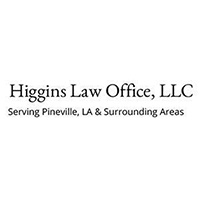Dupont Juvenile Law Lawyer, Louisiana
Sponsored Law Firm
-
 x
x

Click For More Info:
-
Babcock Trial Lawyers
10101 Siegen Ln #3-C Baton Rouge, LA 70810» view mapCriminal Defense We Want Your Injury Claim PAID NOW!
At Babcock Trial Lawyers, we work for our clients, maintaining our reputation of excellence as criminal defense & personal injury lawyers in Baton Rouge.
225-500-5000
Not enough matches for Dupont Juvenile Law lawyer.
Below are all Dupont Criminal lawyers.
George Higgins
✓ VERIFIEDCriminal, Accident & Injury
George Lewis Higgins III received his Juris Doctor degree in 1979 from Paul M. Hebert Law Center at Louisiana State University in Baton Rouge. Mr. Hig... (more)
Dwazendra Jné Smith
Lawsuit & Dispute, Divorce & Family Law, Criminal, Accident & Injury
Status: In Good Standing Licensed: 15 Years
David E Marquette
Divorce & Family Law, DUI-DWI, Wills & Probate
Status: In Good Standing Licensed: 39 Years
Travis J Denicola
Traffic, Employment, Divorce & Family Law, Criminal
Status: In Good Standing Licensed: 14 Years
Chad P. Guillot
Traffic, Lawsuit & Dispute, Criminal, Contract, DUI-DWI
Status: In Good Standing Licensed: 13 Years
FREE CONSULTATION
CONTACTBradley Paul Dauzat
Divorce & Family Law, Criminal, Accident & Injury
Status: In Good Standing Licensed: 27 Years
Benjamin David James
State Appellate Practice, Family Law, Criminal, Personal Injury
Status: In Good Standing Licensed: 14 Years
Michael F Kelly
Government, Divorce & Family Law, Criminal
Status: In Good Standing Licensed: 51 Years
 Stephen Babcock Baton Rouge, LA
Stephen Babcock Baton Rouge, LA Practice AreasExpertise
Practice AreasExpertise

